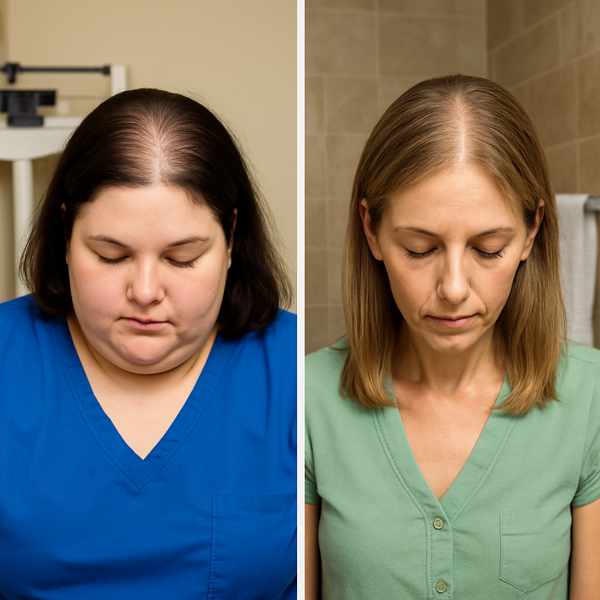Hair Shedding and Weight Loss: Causes and Solutions
Hair Shedding and Weight Loss: Causes and Solutions
Blog Article

Losing weight is often a positive step toward better health, but it can sometimes come with unwelcome side effects — like hair loss.
Understanding why this happens and how to protect your hair can help you reach your goals without compromising your confidence.
What Causes Hair Loss After Losing Weight?
When your body undergoes a major change — especially fast weight loss — it can respond by pausing non-essential functions like hair growth.
Common causes include:
- Lack of protein, iron, or vitamins
- Extreme calorie restriction
- Hormonal imbalances
- The body reacts to sudden changes
Understanding Telogen Effluvium
It’s a temporary condition where hair enters the shedding phase prematurely.
Key facts:
- Usually occurs 2–3 months after weight loss begins
- No bald patches, just thinning
- Hair usually grows back with time
Nutrients Critical for Hair Health
If you're trying to lose weight, be sure not to miss these nutrients:
- Protein
- Carries oxygen to hair follicles
- Vital for cell renewal and keratin production
- Zinc
- Vitamin D
Skipping meals or using crash diets can easily lead to deficiencies that trigger hair loss.
Can You Prevent Hair Loss While Losing Weight?
It’s possible to do both by following a balanced and mindful approach.
Tips include:
- Aim for 1–2 pounds per week
- Focus on whole, balanced meals
- Especially during calorie restriction
- Both affect hormones and hair health
- Hair needs water, too
How to Manage Hair Loss During Your Journey
If you notice excessive shedding:
- It’s likely temporary
- Check for deficiencies or thyroid issues
- Replenish what’s missing
- Avoid tight hairstyles and harsh products
- Be patient
Should You Talk to a Doctor?
A doctor hair loss after weight loss surgery or dermatologist can help identify underlying issues like:
- A common cause of both weight and hair changes
- Autoimmune conditions
- Severe nutritional deficiencies
Final Thoughts
By understanding what’s happening inside your body, you can take steps to protect your health — and your hair.
Prioritize nourishment, patience, and consistency, and your body will thank you — from head to toe. Report this page